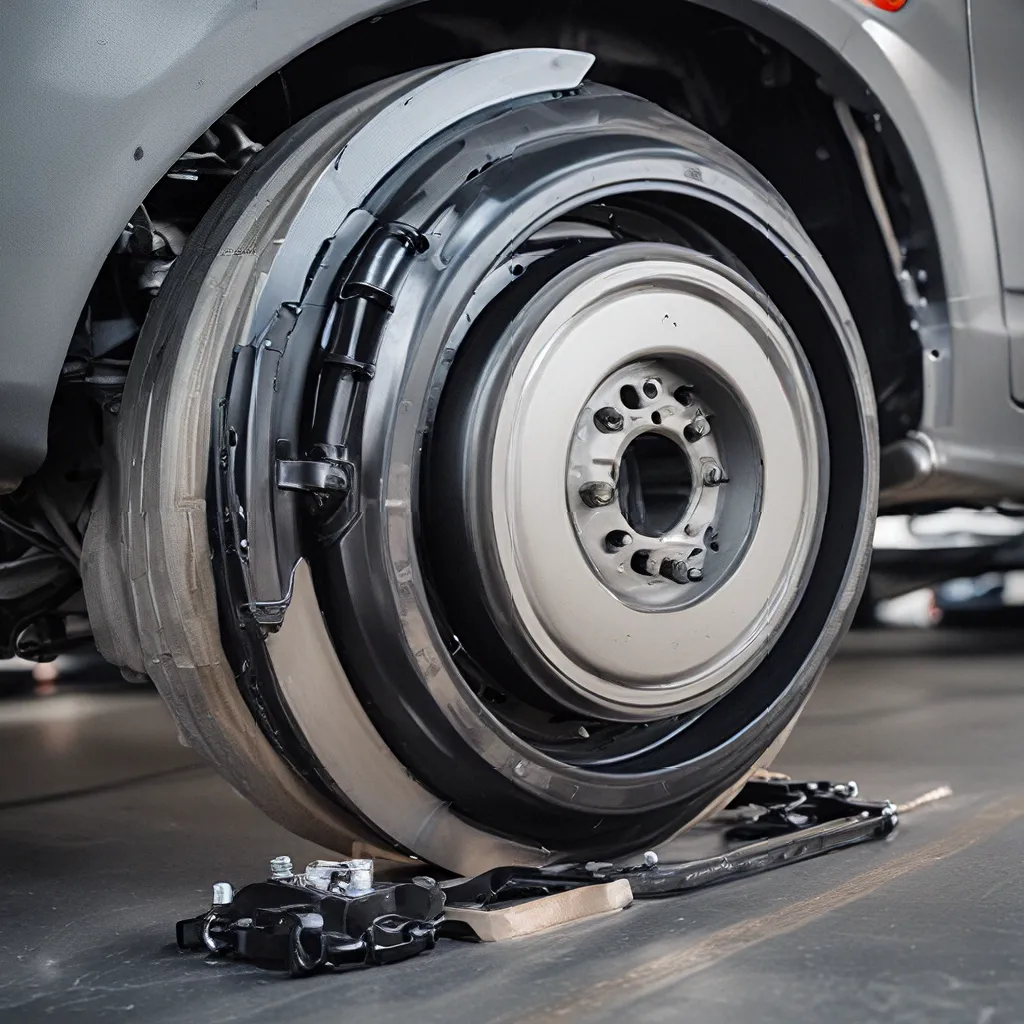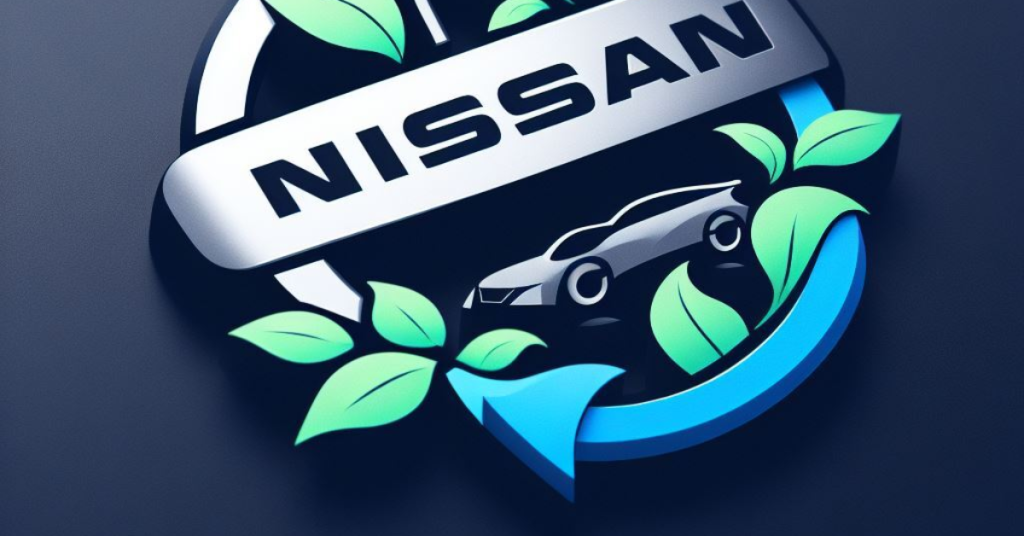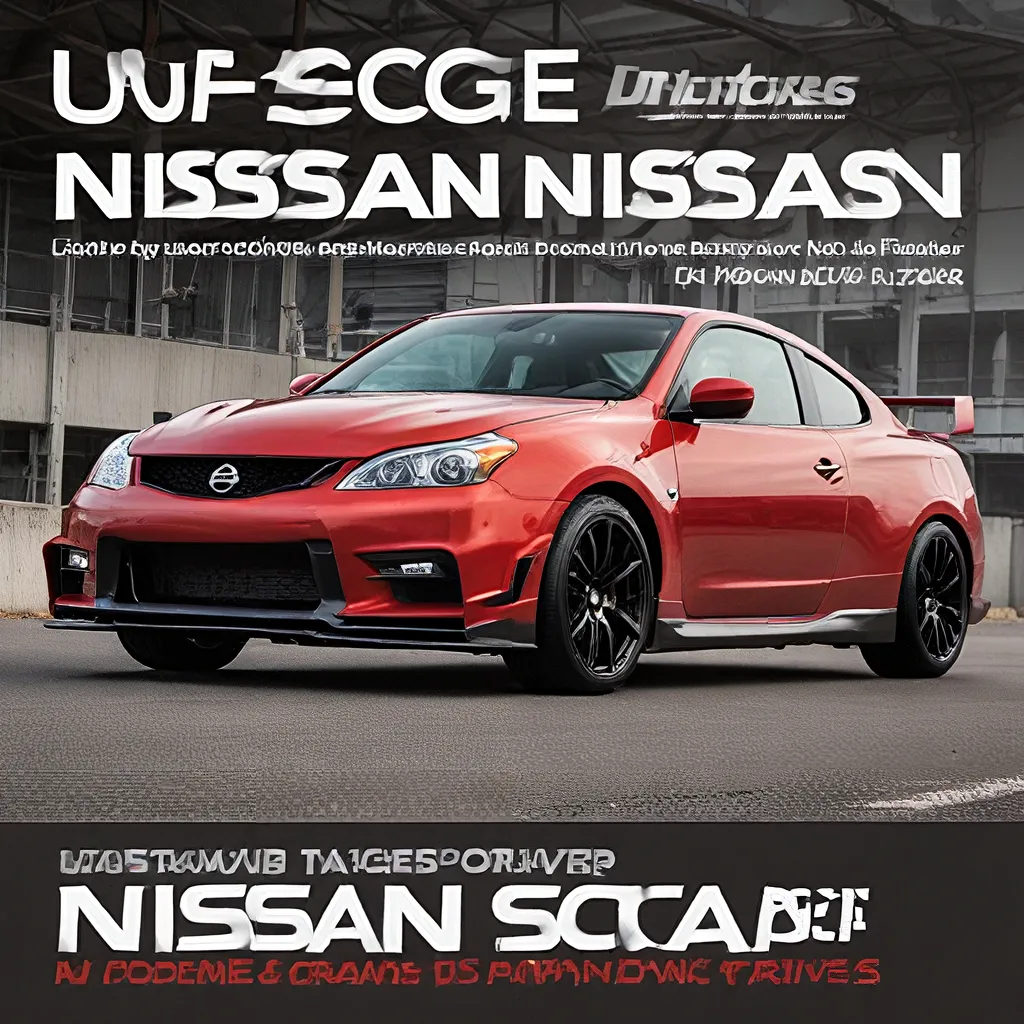
Hitting the Brakes on Uncertainty
Ah, the thrill of the open road – the wind in your hair, the engine roaring, and the sheer power of your Nissan at your fingertips. But, my friends, let’s not forget the unsung heroes of this driving experience – the brakes. These unsung champions, often taken for granted, are the true guardians of our safety, ensuring that we can navigate the twists and turns of life’s journeys with confidence.
As a proud Nissan owner, I’ve come to appreciate the intricate dance between my car’s suspension and braking systems. It’s a delicate balance, like a well-choreographed ballet, that keeps me firmly in control, even when the unexpected happens. And let me tell you, there’s nothing quite like the feeling of slamming on those brakes and coming to a smooth, assured stop – it’s the automotive equivalent of a mic drop.
But, as with any complex system, maintaining your Nissan’s braking prowess requires a bit of TLC. That’s why I’ve put together this comprehensive guide, drawing from my own experiences and the wisdom of the automotive community, to help you master the art of keeping your Nissan’s brakes in top-notch condition.
Understanding the Fundamentals
Before we dive into the nitty-gritty of brake maintenance, it’s crucial to understand the basic components and workings of your Nissan’s braking system. At the heart of it all lies the brake pedal, which, when pressed, activates a series of interconnected parts that work together to bring your vehicle to a halt.
The brake pedal is connected to the master cylinder, which is responsible for generating the hydraulic pressure that travels through the brake lines and into the brake calipers. These calipers, equipped with brake pads, then clamp down on the rotor or disc, creating the friction that slows and stops your car.
Sounds simple enough, right? But, my friend, there’s a lot more going on beneath the surface. The braking system is a delicate dance of precision engineering, and keeping it in sync is the key to a smooth, safe ride.
Warning Signs and Symptoms
As responsible Nissan owners, it’s our duty to stay vigilant and attuned to the subtle cues our vehicles provide. After all, our cars are like loyal companions, and they’ll always let us know when something’s amiss – if we’re willing to listen.
One of the first signs that your Nissan’s braking system may be in need of attention is a spongy or soft brake pedal. This could indicate a problem with the hydraulic system, potentially a leak or issue with the master cylinder. Another telltale sign is a high-pitched squeal or grinding noise when applying the brakes. This often means the brake pads are worn and need to be replaced.
But it’s not just the sounds and feelings that can clue you in. Keep an eye out for any uneven wear on your tires, as this could be a sign of misaligned or malfunctioning suspension components, which can have a ripple effect on your braking performance.
Remember, it’s always better to address these issues proactively, before they turn into costly and potentially dangerous problems. So, be sure to keep a close eye on your Nissan, and don’t hesitate to take action at the first sign of trouble.
Routine Maintenance and Inspections
Maintaining your Nissan’s braking system is a lot like keeping your body in tip-top shape – it requires a regular exercise regimen and a balanced diet of preventative care. And, just like with your own health, the key is to stay on top of it before any major issues arise.
One of the most important steps in this process is a thorough, regular inspection of your braking components. This should include a visual check of the brake pads, calipers, and rotors, as well as a test of the hydraulic system. And don’t forget to have your mechanic take a look at the suspension system, as any misalignment or worn-out parts can have a direct impact on your braking performance.
But it’s not just the big stuff that matters. Even the seemingly minor tasks, like keeping an eye on your brake fluid levels and ensuring your tires are properly inflated, can make a world of difference in the long run. After all, it’s the little things that can add up to big problems if left unchecked.
So, be diligent, my fellow Nissan enthusiasts. Set a calendar reminder, create a checklist, or even enlist the help of a trusted mechanic to ensure your braking system is in tip-top shape. Remember, an ounce of prevention is worth a pound of cure when it comes to the safety and performance of your beloved Nissan.
Brake Upgrades and Enhancements
Now, I know what you’re thinking – “But wait, isn’t this just about maintaining my current braking system?” Well, my friends, let me tell you, there’s a whole world of upgrades and enhancements out there that can take your Nissan’s braking prowess to the next level.
Whether you’re looking to improve your stopping power for track days, or simply want a more responsive and confident feel on the daily commute, there are a plethora of options to explore. From performance brake pads and rotors to high-performance calipers and even specialized brake fluid, the possibilities are endless.
Nissan has always been at the forefront of automotive innovation, and their braking systems are no exception. By staying up-to-date with the latest advancements and customizing your setup to your driving needs, you can unlock a whole new level of control and confidence behind the wheel.
Of course, as with any upgrade, it’s crucial to do your research and consult with knowledgeable professionals to ensure you’re making the right choices for your Nissan. But trust me, the thrill of activating those upgraded brakes and feeling the raw power of your car’s deceleration is something that has to be experienced to be believed.
Driving with Confidence
Now, as we wrap up our journey through the world of Nissan’s braking systems, I want to leave you with one final piece of advice: Drive with confidence.
Yes, maintaining your brakes is crucial, but it’s only half the battle. The other half is recognizing your own abilities and limitations as a driver, and adapting your behavior accordingly. Remember, those brakes are there to keep you safe, not to be tested to their limits on every drive.
So, be mindful of your surroundings, leave plenty of room for braking, and never, ever, let overconfidence or recklessness compromise your safety or the safety of those around you. After all, the true measure of a skilled driver isn’t how fast they can go, but how smoothly and confidently they can bring their vehicle to a halt.
My fellow Nissan enthusiasts, I hope this guide has opened your eyes to the wonders of your car’s braking system and inspired you to take a more active role in its maintenance and enhancement. Remember, by mastering the art of braking, you’re not only ensuring your own safety but also contributing to the well-being of all who share the road with you.
So, go forth, drive with confidence, and let your Nissan’s brakes be the unsung heroes that keep you firmly in control, no matter what life throws your way.






